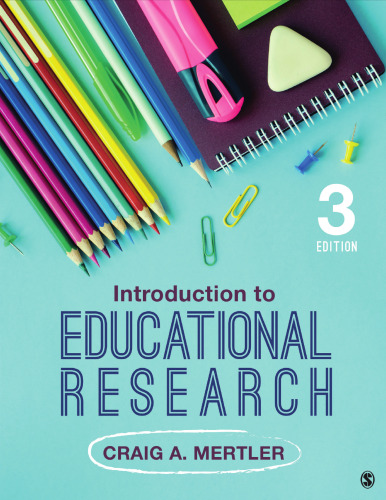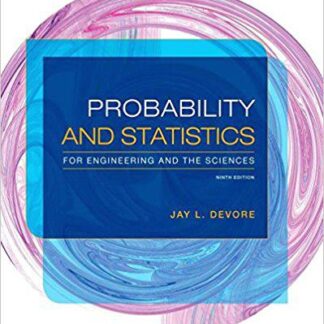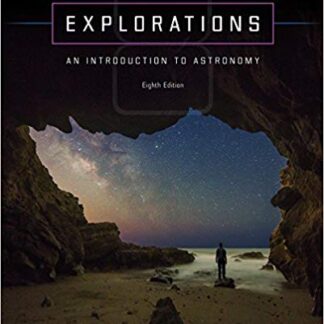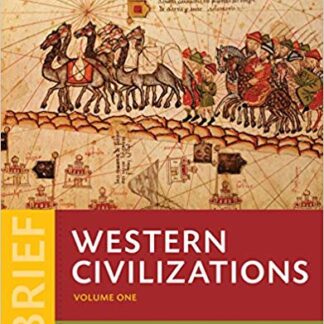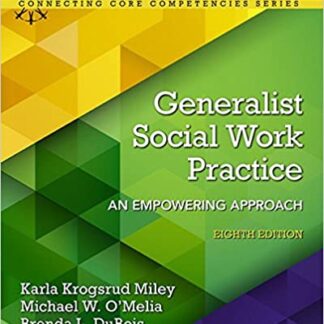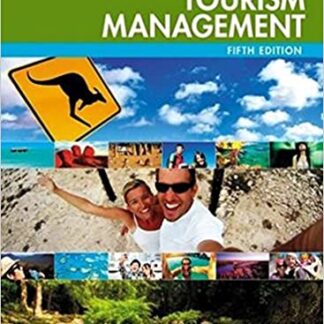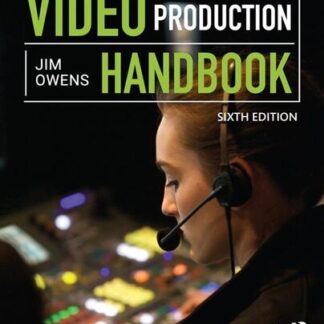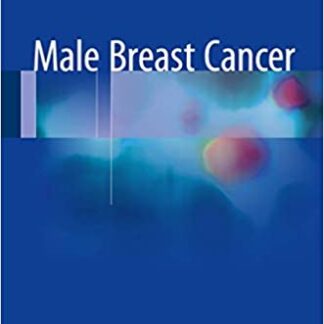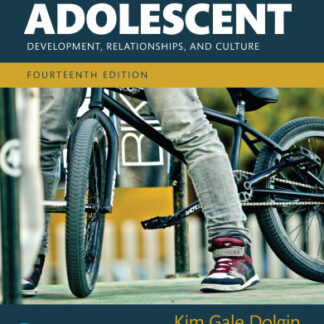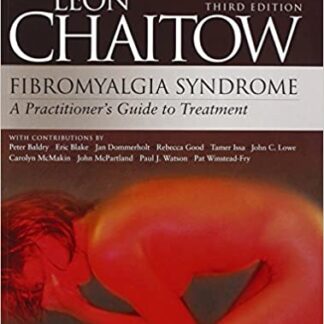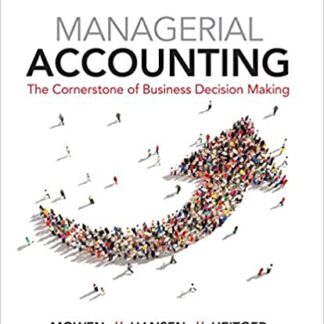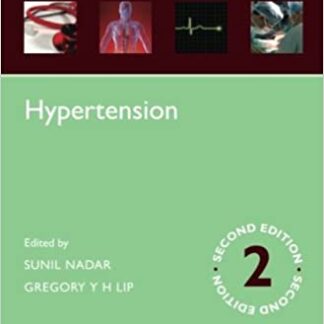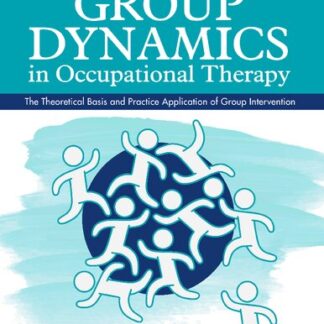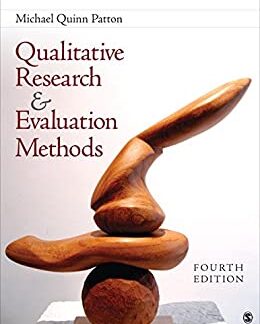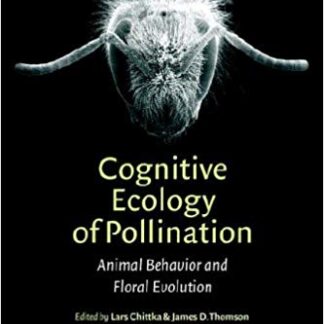Description
Introduction to Educational Research 3rd Edition by Craig A. Mertler, ISBN-13: 978-1544388311
[PDF eBook eTextbook] – Available Instantly
- Publisher : SAGE Publications, Inc; Third edition (January 8, 2021)
- Language : English
- 424 pages
- ISBN-10 : 1544388314
- ISBN-13 : 978-1544388311
NOTE: This eBook is a standalone eBook and will not include any access codes.
This Third Edition of Craig Mertler’s practical text helps readers every step of the way as they plan and execute their first educational research project. Offering balanced coverage of qualitative and quantitative methods, an emphasis on ethics, and a wealth of new examples and concrete applications, the new edition continues to use conversational, nontechnical language to help students clearly understand and apply research concepts, principles, procedures, and terminology. Expanded coverage of foundations of research, an increased focus on integrating qualitative and quantitative research, and updated coverage of research questions and the tools of qualitative research bring the book thoroughly up-to-date, while streamlined coverage of statistics shows students how to do quantitative analysis in a straightforward way.
Table of Contents:
Preface
Acknowledgments
About the Author
PART I • Initial Research Considerations
Chapter 1 • What Is Educational Research?
Finding Answers to Questions
The Scientific Method
Educational Research—What It Is and What It Is Not
Educational Research as a Process
Knowing Your Specific Discipline
Educators as Researchers
• Developmental Activities
• Summary
Chapter 2 • Overview of the Educational Research Process
Identifying and Limiting a Research Topic or Problem
Formally Stating and Refining Research Question(s)
Reviewing Existing Literature Related to the Problem
Writing a Literature Review
Developing a Research Plan
Implementing the Research Plan and Collecting Data
Analyzing the Data
Stating Findings, Conclusions, and Recommendations in a Written Research Report
The Educational Research Process—A Brief Example
• Developmental Activities
• Summary
Chapter 3 • Identifying a Research Problem
Identifying a Research Topic or Problem
Preliminary Considerations in Selecting Topics
Limiting a Topic
Sample Educational Research Topics
Necessary Terminology Related to Research
Research Questions and Hypotheses
• Developmental Activities
• Summary
Chapter 4 • Ethics in Educational Research
Ethical Considerations in the Conduct of Research
Ethics in Qualitative Versus Quantitative Studies
Institutional Review Boards
Formal Preparation for Research With Human Participants
• Developmental Activities
• Summary
Chapter 5 • Reviewing Related Research Literature
What Is a Literature Review?
Sources for Literature Related to Your Research Topic
Searching the ERIC Online Database
Searching the Google Scholar Online Database
Writing Your Literature Review
Not Just for Conducting Research—Valuable Sources for Professional Development
• Developmental Activities
• Summary
PART II • Designing a Research Study
Chapter 6 • Qualitative Research Methods
Characteristics of Qualitative Research
The Qualitative Research Process
Approaches to Conducting Qualitative Research
Ethnographic Research
Narrative Research
Historical Research
Grounded Theory Research
Phenomenological Research
Case Study Research
More About Ethnographic Research
Topics and Procedures in Ethnographic Research
Strengths and Concerns in Ethnographic Research
More About Narrative Research
Procedures in Narrative Research
Strengths and Concerns in Narrative Research
• Developmental Activities
• Summary
Chapter 7 • Quantitative Research Methods
Characteristics of Quantitative Research
The Quantitative Research Process
Nonexperimental Research Designs
Descriptive Research
Correlational Research
Causal-Comparative Research
Experimental Research Designs
Preexperimental Research
Quasi-Experimental Research
Experimental Research
Single-Subject Research
Threats to Validity in Quantitative Designs
• Developmental Activities
• Summary
Chapter 8 • Mixed-Methods Research
Characteristics of Mixed-Methods Research
The Mixed-Methods Research Process
Approaches to Conducting Mixed-Methods Research
Mixed-Methods Research Designs
Validity in Mixed-Methods Research
Strengths and Limitations of Mixed-Methods Research
• Developmental Activities
• Summary
Chapter 9 • Action Research
Characteristics of Action Research
Approaches to Conducting Action Research
The Action Research Process
Action Planning and Reflection
Validity in Action Research
Strengths and Limitations of Action Research
• Developmental Activities
• Summary
Chapter 10 • Writing a Research Proposal
Purpose of a Research Proposal
General Aspects of a Research Proposal
Components of a Quantitative Research Proposal
Components of a Qualitative Research Proposal
Proposals for Action Research and Mixed-Methods Studies
• Developmental Activities
• Summary
PART III • Collecting and Analyzing Data
Chapter 11 • Qualitative Data Collection and Analysis
Sampling Techniques in Qualitative Research
Qualitative Data Collection Techniques
Observations
Interviews
Journals
Existing Documents and Records
Characteristics of Qualitative Data: Accuracy, Credibility, and Dependability
Qualitative Data Analysis Techniques
Inductive Analysis
• Developmental Activities
• Summary
Chapter 12 • Quantitative Data Collection
Sampling Techniques in Quantitative Research
Probability Sampling Techniques
Nonprobability Sampling Techniques
Sample Sizes in Quantitative Studies
Levels of Measurement
Quantitative Data Collection Techniques
Surveys, Checklists, and Rating Scales
Formative and Summative Classroom Assessments
Standardized Test Scores
Characteristics of Quantitative Data: Validity and Reliability
Validity in Quantitative Research
Reliability in Quantitative Research
Relationship Between Validity and Reliability
• Developmental Activities
• Summary
Chapter 13 • Quantitative Data Analysis
Quantitative Data Analysis Techniques
Preparing Data for Analysis
Selecting a Statistical Analysis Software Program
Descriptive Statistical Analysis
Inferential Statistical Analysis
Cautions in Using Statistics
• Developmental Activities
• Summary
PART IV • The Research Report
Chapter 14 • Writing a Final Research Report
Importance of the Audience
General Guidelines for Writing a Research Report
Style Guides
Conventions of Academic-Style Writing per APA Style
Conventions of Format
Practical Guidelines for Writing
An Example of a Research Report
• Developmental Activities
• Summary
Appendix A: Should I Stay or Should I Go? Understanding Teacher Motivation, Job Satisfaction, and Perceptions of Retention Among Arizona Teachers
Appendix B: Undocumented and College-Bound: A Case Study of the Supports and Barriers High School Students Encounter in Accessing Higher Education
Appendix C: The Impact of Book Reading in the Early Years on Parent–Child Language Interaction
Glossary
References
Index
Craig A. Mertler is currently an Associate Professor of Action Research and Quantitative Methods at Barry University in Miami, Florida. He began his career as a high school biology teacher. He has been an educator for 39 years―29 of those in higher education at Bowling Green State University, the University of West Georgia, Lynn University, Arizona State University, and Barry University, and 12 years as an administrator (department chair, doctoral program director, and education dean). Over his career, he has taught courses focused on the application of action research to promote educator empowerment, school improvement, and job-embedded professional development, as well as classroom assessment, research methods, and statistical analyses.
He has served as the research methodology expert and/or chair on more than 140 doctoral dissertations and master’s theses. He is the author of 30 books, 9 invited book chapters, and 25 refereed journal articles. He has also presented more than 40 research papers at professional meetings around the country, as well as internationally.
He conducts workshops for in-service educational professionals (at all levels) on classroom-based action research and on the topics of classroom assessment and assessment literacy, as well as data-driven educational decision making. His primary research and consulting interests include classroom-based action research, data-driven educational decision making, professional learning communities, and classroom teachers’ assessment literacy. In his leisure time, he enjoys traveling with his family to the beach and sometimes writing a little fiction.
What makes us different?
• Instant Download
• Always Competitive Pricing
• 100% Privacy
• FREE Sample Available
• 24-7 LIVE Customer Support

